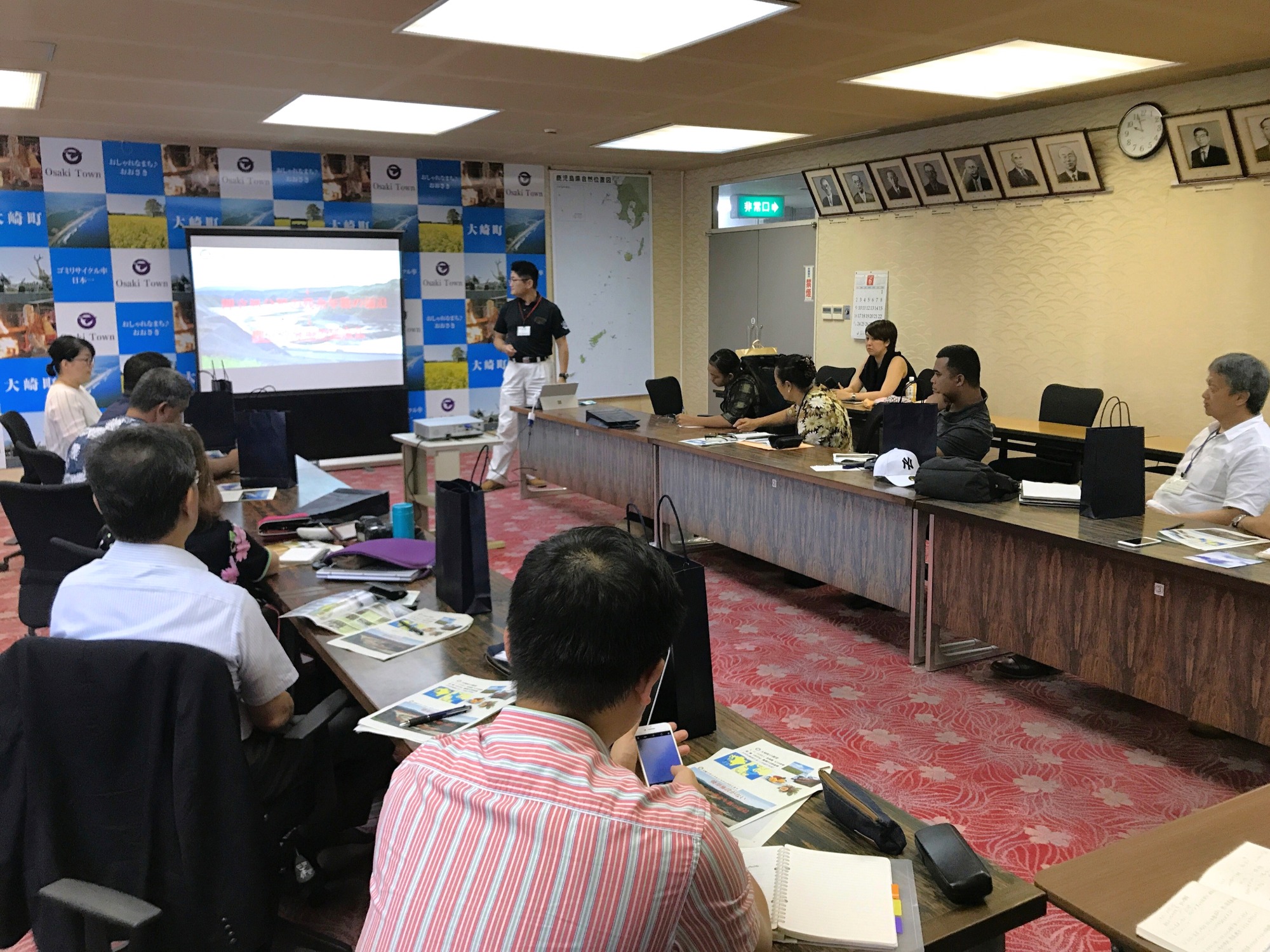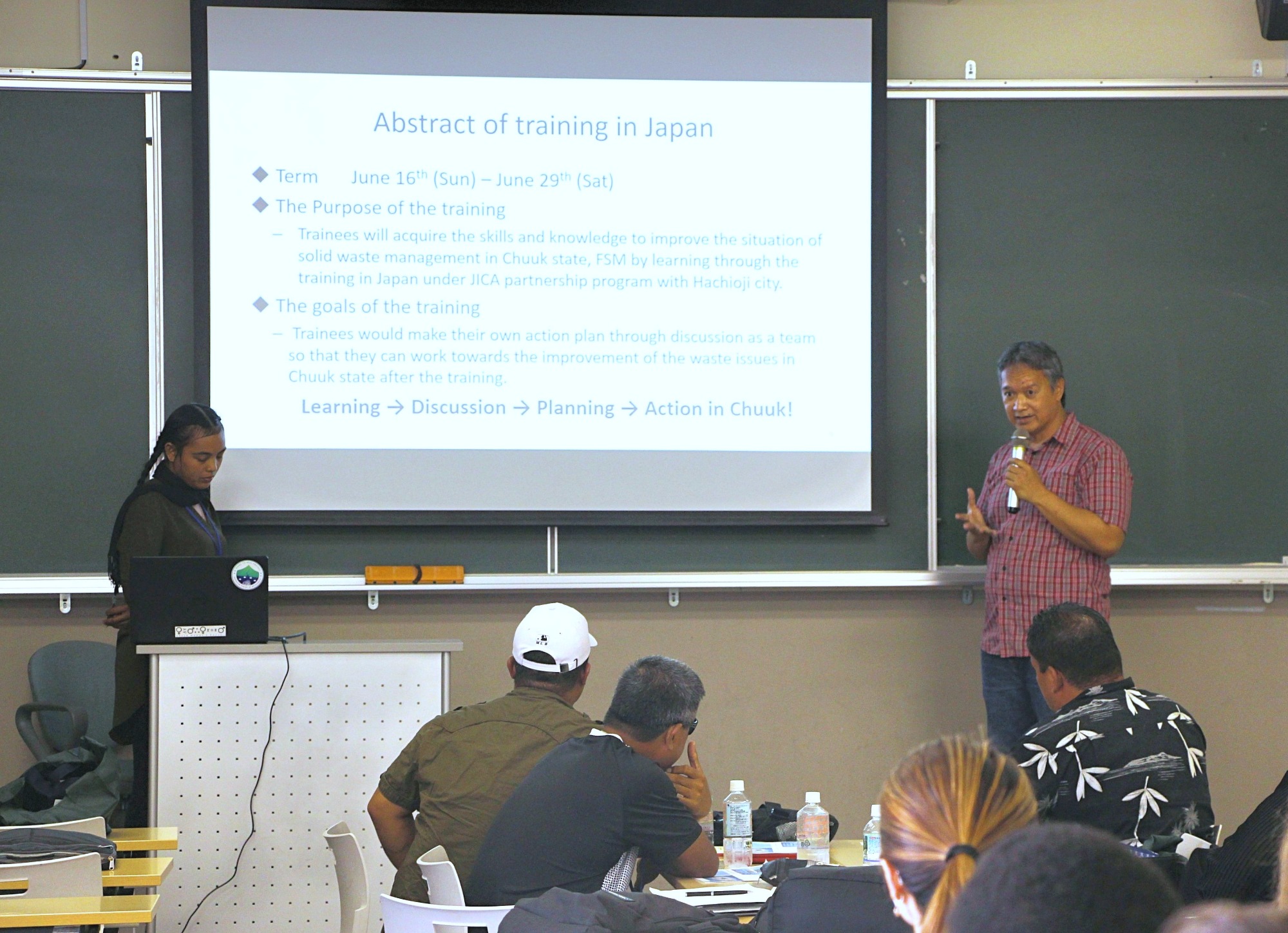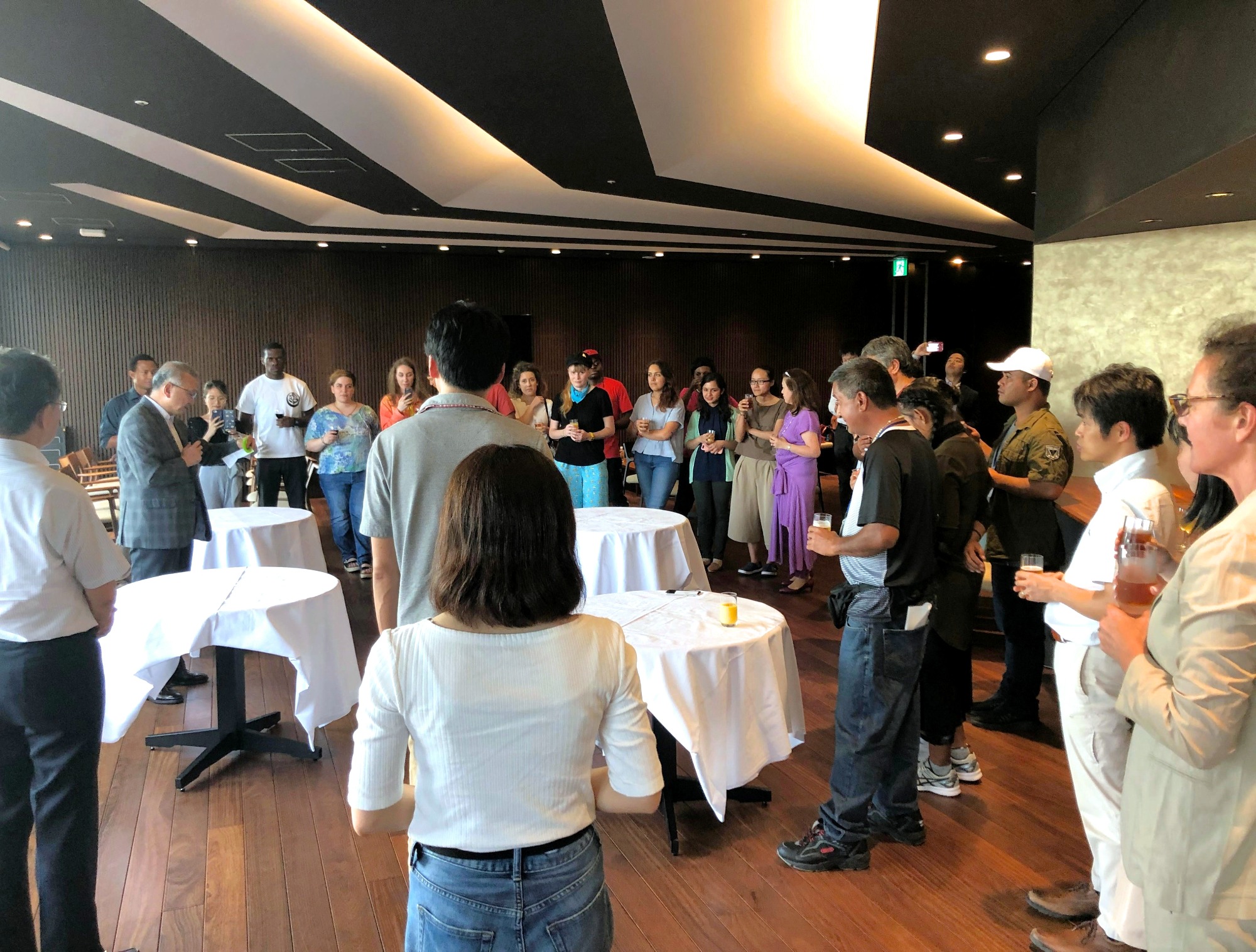JICA Partnership Program: APIC Joins Chuuk, FSM Garbage Disposal Project Members Training

(Receiving a briefing at Osaki Town Hall)
Hachioji is implementing a plan under JPP titled ‘Improvement of Solid Waste Management In Pacific Island Countries-The Cooperative 2R Promotion Project in the State of Chuuk, FSM’. This time, the program invited people involved in solid waste management in Chuuk to a training session held from June 16th to 29th in Japan. After the training was held in Hachioji, the party visited the town of Osaki in Shibushi, Kagoshima prefecture. Here APIC provided training support and joined the trainees for these few days. APIC is considering Osaki as a future location for its invitation program.
During the briefing at Shibushi city, the speakers talked about how residents separate their garbage into 27 different categories, and how the city collects garbage based on those categories which increased the recycling rate. In the year 2000, Shibushi city started their recycling program initially with only 19 categories, and within seven years they achieved success with an 80% decrease in general waste. Shibushi city started this recycling program in response to the projection that the city’s landfill will become full by 2005, and needed to think of a way to extend its life. In the end, the city decided not to build an incinerator, but to endorse a sustainable refuse treatment with a high recycle rate.
They also explained how officials visited local residents’ associations, homes, and held workshops over 450 times in total in one year with the objective to gain residents’ understanding and cooperation regarding the new recycling and categorization system. City hall had to rely on local communities to come together and fill in the gaps where the city’s call for cooperation, understanding, meaning and purpose of the new system was lacking. The members from Chuuk showed particular interest in this part as there was a link between the challenge that Chuuk has of handling a weak local community and how Shibushi city strengthened their local community.
The following day the members visited the solid waste management facility and recycling facility that the city manages. After processing at the recycling facility and selling the new, recycled resources, the city gains excess profit, and with that surplus returns it to the citizens by investing it in sectors such as education and welfare as a way of showing thanks for cooperating with the program. In the city’s explanation, by citizens and government cooperating with each other to reduce waste and aim to improve recycling rates, it is important to make residents know that new resources are created, which are then returned back to the community.
The town of Osaki also separates its waste into 27 categories. Osaki and Shibushi are both able to eliminate the use of garbage incinerators and instead rely on a high rate recycling system. In Osaki, the town has successful reduced its waste removal expenditures, using the excess money for the town’s education and welfare sectors.
This training program was held in Shibushi city and Osaki town, where participants had a full schedule filled with briefings and site visits. Both cities emphasized collaboration, cooperation, and trust between citizens, companies, and the government. In particular, the members from Chuuk took to heart that if there is a lack of cooperation from the first generation of citizens introduced to the new recycling system, the program will not succeed. During the program’s Wrap-up Meeting on June 28th, the group presented their Action Plan based on the previous days’ visits and talks, which included the cooperation between residents, companies, and government. In their list of urgent tasks, they included the active involvement of its citizens in reducing solid waste, the role of the government in explaining to residents the program, and the government’s call for support of the new recycling system.
* The JICA Partnership Program (JPP) was introduced in 2002 to support and cooperate with the implementation of projects formulated by Japanese NGOs, Japanese local governments, and Japanese universities to utilize their accumulated knowledge and experience in assistance activities for developing countries. (Taken from JICA’s website)

(Presenting their Action Plan)

(Gathering after the meeting)
WHAT'S NEW
- 2025.12.25 UPDATE
PROJECTS
"Barbados A Walk Through History Part 17"
- 2025.12.2 UPDATE
EVENTS
"Pacific & Caribbean Student Invitation Program 2025"
- 2025.10.30 UPDATE
EVENTS
"Support for the 2025 Japanese Speech Contest in Jamaica"
- 2025.10.30 UPDATE
EVENTS
"Invitation Program for the Director of Bilateral Relations of the Ministry of Foreign Affairs and Trade of Jamaica"
- 2025.10.16 UPDATE
EVENTS
"421st Lecture Meeting Regarding Global Issues"
- 2025.9.18 UPDATE
EVENTS
"420th Lecture Meeting Regarding Global Issues"
- 2025.8.28 UPDATE
PROJECTS
"Barbados A Walk Through History Part 16"
- 2025.7.17 UPDATE
EVENTS
"419th Lecture Meeting Regarding Global Issues"
- 2025.6.19 UPDATE
EVENTS
"418th Lecture Meeting Regarding Global Issues"
- 2025.5.15 UPDATE
EVENTS
"417th Lecture Meeting Regarding Global Issues"




